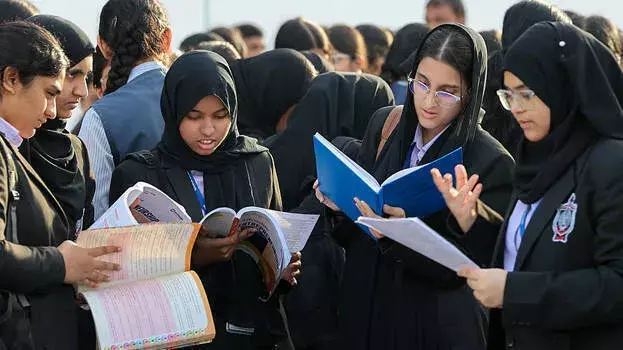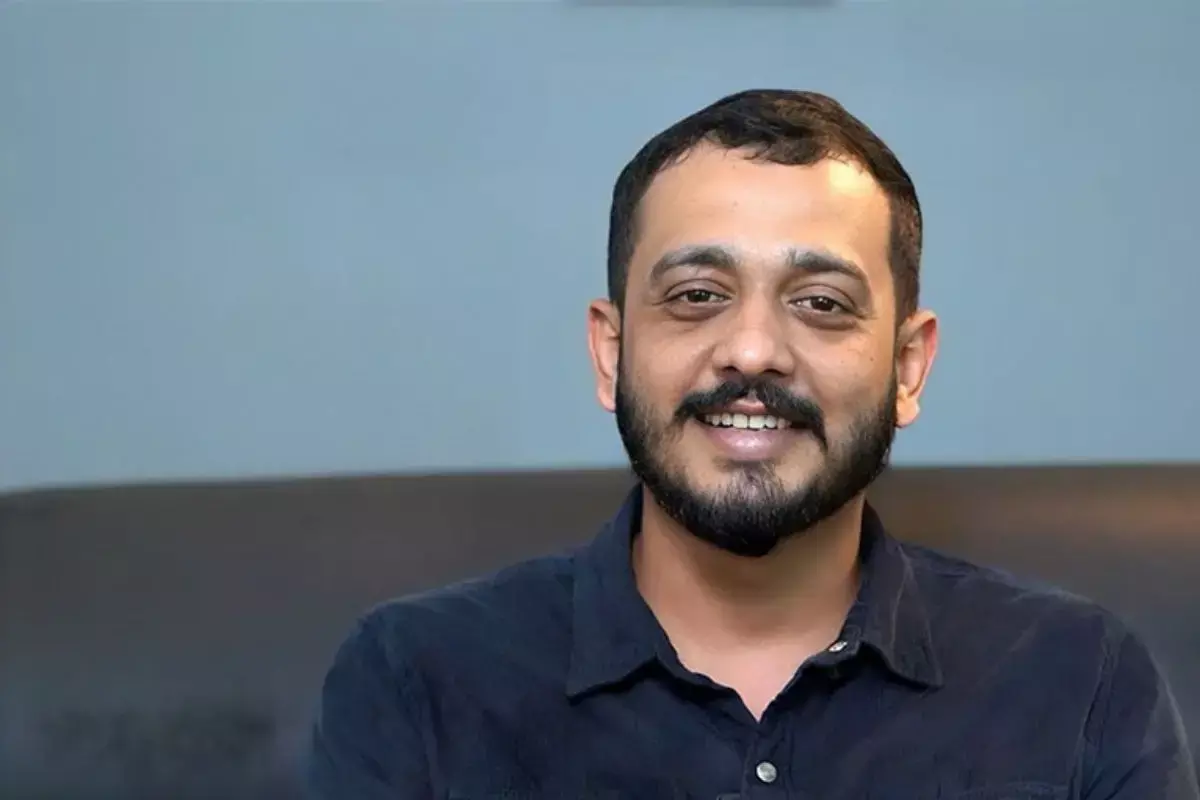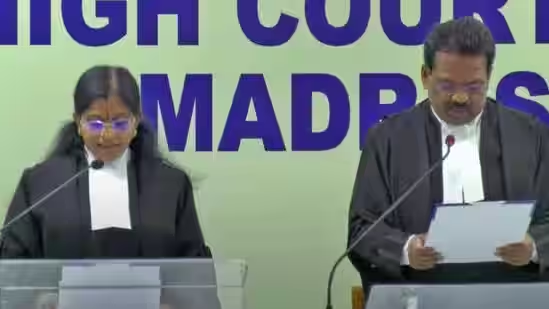
SC says raising new Madras HC judge's hate speech antecedents in 'stretching it too much'
text_fieldsNew Delhi: The Supreme Court on Tuesday said it has a fairly robust scrutiny process and petitioners may be stretching it too much, as their counsel questioned the recommendation to appoint Lekshmana Chandra Victoria Gowri as an additional judge of the Madras High Court by saying that her "views are antithetical to the values of the Constitution, it is hate speech pure and simple".
A bench comprising Justices Sanjeev Khanna and B.R. Gavai told senior advocate Raju Ramachandran, representing the petitioners, that there is a difference between eligibility and suitability, as far as suitability is concerned one can say it can be made subject matter of writ petition, and the aspect of eligibility is the only issue as required under the Constitution.
Ramachandran said a person, who is not in sync with the ideals of the Constitution or basic principles of the Constitution, is unfit to take the oath. He added that Gowri has rendered herself as incapable of taking oath by her own public utterances.
Gowri was administered the oath of office during the hearing before the top court.
The bench said there have been cases when people of political background have taken oath over here as judges of the Supreme Court and the high court. "You placed on record utterances of 2018 and we have seen it, and it must have been placed before the collegium...," it added.
Justice Gavai said when collegium takes a decision, it also takes the opinion of consultee judges who have come from that particular high court and you cannot assume that judges of the particular high court are also not aware of all these things.
Ramachandran said the consultee judges may not be aware of social media posts and cannot presume every judge reads every tweet in public domain.
Justice Gavai said, "We have also been consultee judges and when we give our opinion it is based on all the factors...I also have a political background and I have been a judge for the last 20 years. I do not think my political views at any point of time have come in the way..."
Emphasizing that he is not on the aspect of political background, Ramachandran said political background brings a totally new element into judicial discourse, and added that judges can be of conservative or radical persuasion which adds to the richness of judicial discourse. "It is hate speech, you may be a member of the party...hate speech runs antithetical to the basic tenets of the Constitution, renders you unfit to take the oath...," said Ramachandran.
The bench replied that "for us to go into all these aspects of suitability, merit or selection process would be like opening a new jurisdiction, which we have always refrained from doing."
Ramachandran said her views are antithetical to the values of the Constitution, it is hate speech pure and simple and therefore, it is a clear case of ineligibility. "That will be stretching it too much, if the facts are known to the collegium, they must have examined it...facts not known, that it is not possible you cannot say that issues, background of the person were not known," said Justice Khanna.
There is a certain threshold of requirements, the collegium was stymied as certain information, we assume, were not put before it in view of an open court statement by the Chief Justice of India D.Y. Chandrachud on Monday, Raju said.
"We have a fairly robust scrutiny process...assuming collegium may have not taken into consideration...," said Justice Khanna.
Senior advocate Anand Grover, also representing the petitioners, said her views are extreme in nature making her ex facie ineligible to be judge. "We would be setting up a very wrong precedent, if we entertain the plea," the bench said.
Senior advocate Manan Kumar Mishra submitted that there has been no complaint against her by the Tamil Nadu State Bar Council.
The court also noted that she has been appointed as additional judge only and there have been instances where the candidates have not been made permanent in view of inadequacies of performance. "We are not entertaining the petitions, the reasons will follow," the bench said, after hearing detailed arguments.
The top court order came on petitions filed by Anna Mathew, R. Vaigai, and others challenging Gowri's appointment as an additional judge of the Madras High Court.
The Supreme Court collegium on January 17 had proposed the elevation of advocate Lekshmana Chandra Victoria Gowri as judge of the Madras High Court.
A group of Madras High Court lawyers have opposed Gowri's proposed appointment after reports emerged about her affiliation to the BJP and also certain alleged statements about Muslims and Christians, including 'Love Jihad' and illegal conversion.


























